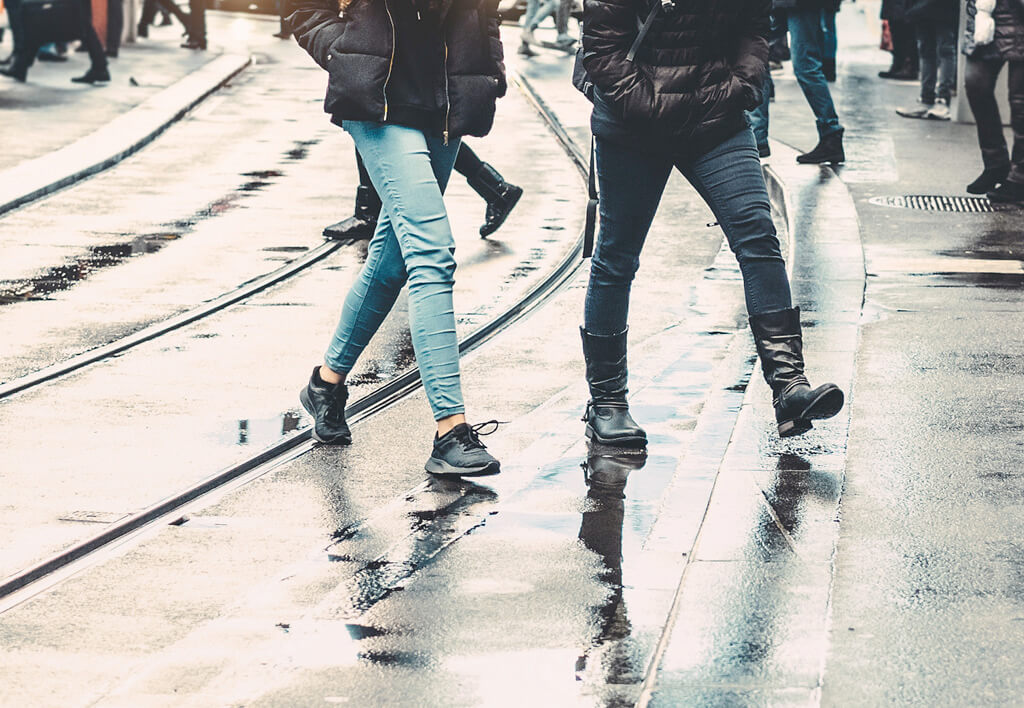
While all car accidents occur under unique circumstances, they typically do not involve another person’s property. When they do—such as when crashes damage buildings or other structures—they bring an array of complications for the property owner, the drivers, and the injured parties. Common questions may include: Whose insurance company pays for the injuries? What are the legal repercussions for the driver? And who pays for the damage to the property?
In this blog, we’ll provide some answers.
DETERMINING FAULT IN COMPLEX ACCIDENTS
After a car crash that causes property damage, proving who is at fault (and thus liable for paying damages) can get complicated. This is why it’s important to get a lawyer involved early.
A personal injury lawyer can help you uncover evidence from all sources, some of which may not be available without a lawyer’s help. For example, in addition to police reports and witness statements, your lawyer can seek testimony from expert witnesses such as an accident reconstructionist.
Expert witnesses are people who did not witness the accident, but who can still provide testimony that can be used to help prove liability. For example, a doctor could serve as an expert witness by describing how a patient’s injuries are consistent with the accident. An accident reconstructionist can also provide testimony about how a crash would have needed to happen in order to cause the damage it did to the building.
WHAT WILL HAPPEN, LEGALLY, IF THE DRIVER IS AT FAULT?
Any time a person seriously endangers the life or well-being of another, there is a chance for criminal charges. However, whether a driver in this situation faces criminal charges will depend on the circumstances surrounding the incident. Were they grossly negligent? Were they under the influence of drugs or alcohol? If yes, criminal charges may be brought against the driver.
That said, whether they face charges or not, a personal injury case is a civil case and not a criminal case. Therefore, the only punishments the driver would receive from a personal injury court, if the driver is found at fault for the injuries, are punitive damages and not prison. Punitive damages are awarded to the plaintiff as a punishment for the defendant’s negligent actions that led to the incident.
THE DRIVER IS NOT ALWAYS TO BLAME
On the surface, the question of fault in this accident appears relatively easy. After all, the vehicle collided with the store – therefore the driver is at fault, right? Well, not necessarily. Was another driver involved? Perhaps there is video evidence from a traffic cam that suggests the crashing vehicle was pushed off-road by a negligent driver upon merging or changing lanes.
It is also possible that the driver’s vehicle malfunctioned due to faulty electronics or parts, causing the crash and consequently, the victims’ injuries. In that case, the manufacturer or designer of the vehicle may be held liable for the damages.
Other details that complicate fault in such occurrences may involve street signage, parking lot design, and even structural weaknesses in the building. Did the store owner have their lights on? How is the structural integrity of the building? It may be surprising, but property owners, engineers, or architects may be held liable if courts find that the property, in some way, was not sufficiently built to prevent disasters. It is rare, but not impossible.
WHAT HAPPENS IF SEVERAL PEOPLE ARE AT FAULT FOR THE ACCIDENT?
It is not uncommon in a car accident, and even a premises liability case, for more than one party to be responsible for an incident. Florida is a pure comparative negligence state in which partial fault deduces compensation by the percentage of fault.
In other words, if the driver who crashed into a storefront is found 70% at fault for the accident, they can still seek up to 30% of the maximum compensation possible. So, the more at fault an individual is in an accident, the less compensation they may claim. If the maximum amount possible is $100,000, they may pursue $30,000, and so on.
WHERE DO THE INJURED PARTIES GO TO SEEK COMPENSATION FOR LOSSES?
Liability for any given injury claim can be complicated and can be made more complicated by insurance companies attempting to pass the buck. Personal injury lawyers who represent victims of accidents like these are adept at seeking the most possible for an insurance claim on behalf of their clients. And, if necessary, many will take the claim to court.
If awarded, compensation should cover expenses and losses related to the accident injuries. You may obtain compensation for:
- Medical expenses, including billing for x-rays, scans, physical therapy, and more
- Lost wages from missing work time
- Pain and suffering, including emotional and psychological suffering
It is imperative that victims injured in these complex cases do not accept the initial amount offered by an insurance company without first speaking to a personal injury attorney.
FLORIDA AUTO ACCIDENT AND PREMISES LIABILITY LAWYER READY TO SERVE YOU
At Aigen Injury Law, we provide extensive personal injury representation to victims of premises liability accidents, motor vehicle accidents, and numerous other incidents and injuries. Founder and attorney, Scott Aigen, Esq., has over a decade of experience working in and out of the courtroom as a Miami personal injury attorney. If you have recently been injured in a serious accident, contact our office to better understand your legal options as you pursue compensation for your losses.
Originally published March 30, 2022. Updated June 12, 2024.
